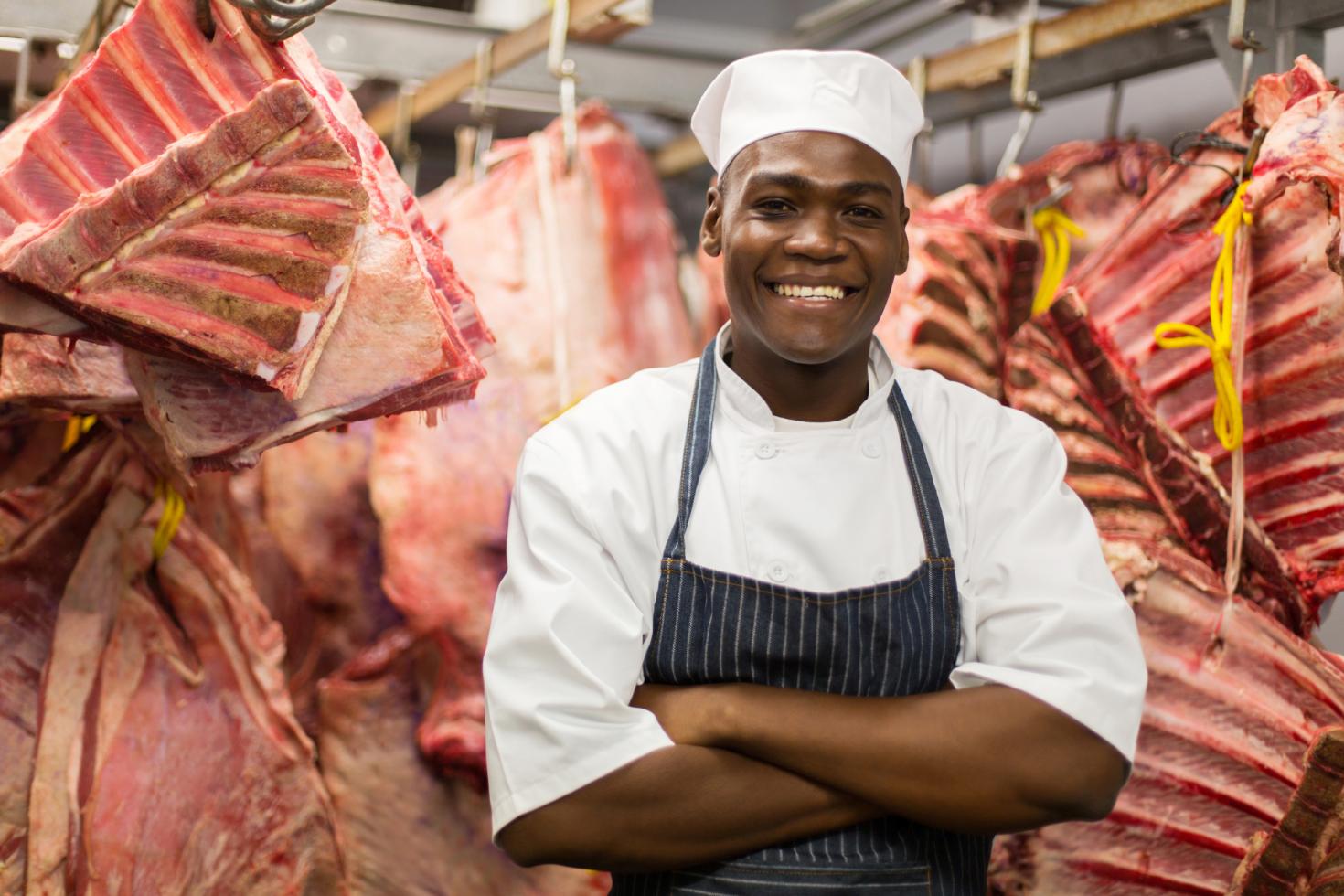17 workers from one of the most important processing plants in the country were trained by IICA regarding mitigation and risk reduction
 The objective of the training was to strengthen the capacity of the staff and butchers at the Abattoir in the prerequisites leading to Hazard Analysis and Critical Control Points (HACCP) certification of the Abattoir; whereas, the expected result is improved capacity of the staff and butchers to identify and mitigate food safety hazards of meats processed at the Mirabeau Abattoir. Mr. Kenly Edwards who is a certified HACCP trainer under the IICA implemented Sanitary and Phytosanitary (SPS) Project facilitated the training.
The objective of the training was to strengthen the capacity of the staff and butchers at the Abattoir in the prerequisites leading to Hazard Analysis and Critical Control Points (HACCP) certification of the Abattoir; whereas, the expected result is improved capacity of the staff and butchers to identify and mitigate food safety hazards of meats processed at the Mirabeau Abattoir. Mr. Kenly Edwards who is a certified HACCP trainer under the IICA implemented Sanitary and Phytosanitary (SPS) Project facilitated the training.
A total of seventeen staff and butchers received the training in food safety. This training was a recommendation from an assessment conducted at the Abattoir by one of IICA’s Agricultural Health Specialists in June this year following a request by the Grenada Minister of Agriculture for technical assistance from IICA for the Abattoir.
The Mirabeau Abattoir is the largest and most modern of the three such facilities in Grenada. It processes approximately 75 animals per week although its throughput is estimated at 55 animals per day. It is designed to international public health standards with slaughtering capacity to meet national demands. Its location, layout and equipment will enable the Abattoir to serve as a model for the processing and marketing of best quality meats. The number of animals being processed at the Mirabeau Abattoir will be scaled up in keeping with the logistics, operational and food safety programmes being implemented by the Ministry of Agriculture in collaboration with IICA and other agencies.
The training of the staff and butchers in food safety was very timely because of the increased number of animals that is being slaughtered for the Christmas Season. It is important that the staff make the necessary provisions to accommodate and process a larger number of animals without compromising quality and safety.
In his remarks, Derek Charles, National Specialist at IICA emphasised the need for the training at this time and alluded to the need for occupational safety and health of the staff due to the nature of the operations that take place at the Abattoir. Wet floor that can become slippery and sharp working tools were identified as two of the hazards to be mindful of during the processing operations.
Going forward, the Mirabeau Abattoir will build customers confidence by processing safe and quality meats thus increasing production and reducing on the level of backyard butchering done under poor handling practices and unhygienic standards.
Interviews with the participants:
Grenada Abattoir Poised to Process Safer Meats during the Busy Christmas Season
More information:
Derek Charles, National Specialist, IICA Delegation in Grenada
derek.charles@iica.int











